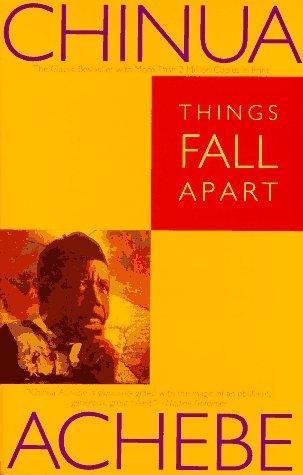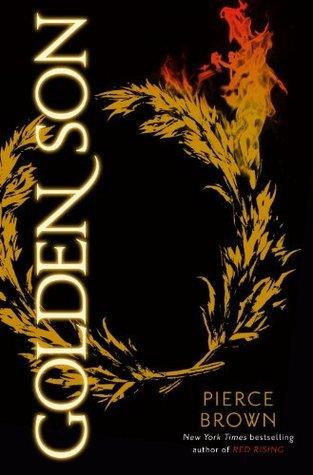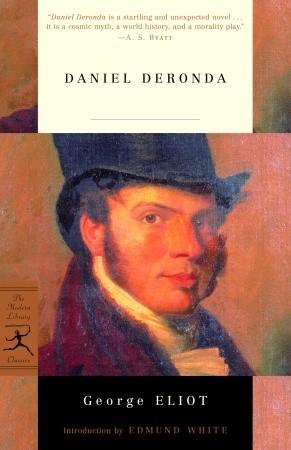Things Fall Apart by Chinua Achebe Book Summary
Discover a comprehensive summary of "Things Fall Apart" by Chinua Achebe, exploring key insights, themes, and a detailed review. Dive into the profound impact of this classic novel on African literature and culture. Perfect for students and literature enthusiasts alike!
Things Fall Apart Book Summary
Things Fall Apart by Chinua Achebe is a powerful novel that explores the complexities of Igbo society and the impact of colonialism on traditional African culture. This timeless classic delves into themes of identity, change, and resilience through the life of Okonkwo, a proud and determined warrior. In this article, we provide a concise book summary, uncover key insights, and offer a thoughtful review to help readers appreciate Achebe’s masterful storytelling and cultural critique.
Discover key themes and insights in the Invisible Man Book Summary, Review & Key Insights to deepen your understanding and connect ideas seamlessly within your reading journey.
Things Fall Apart by Chinua Achebe - Introduction
I had no idea how deeply a story could change the way I see history until I read Things Fall Apart by Chinua Achebe. At first, I picked it up because it’s one of those classic novels everyone talks about, and honestly, I thought it would just be another historical fiction set in Africa. But what surprised me was how Achebe flips the usual narrative — instead of the typical outsider’s view of colonial Africa, he dives into the life of Okonkwo, a complex Igbo man, showing his culture’s richness and struggles from the inside. It made me rethink how history is told and whose voices get heard.
If you’ve ever felt like history lessons were missing something or if you’re curious about African literature beyond stereotypes, this book is for you. It’s not just for school assignments (though it’s perfect for that, too), but for anyone who loves fiction, classics, and novels that make you feel connected to a different world. At around 209 pages, it’s a manageable read — I finished it in a couple of days, and each page pulled me in more.
Whether you’re into historical fiction, African literature, or just great storytelling, this book offers a powerful glimpse into Nigeria’s past and the human spirit facing change. Trust me, once you start, you’ll see why it’s a staple in literature classes and a must-read for anyone wanting to understand a part of the world that’s often overlooked.
What is Things Fall Apart About?

"Things Fall Apart" by Chinua Achebe tells the story of Okonkwo, a respected Igbo leader, whose life unravels as colonial forces and Christianity disrupt traditional African society. The main message emphasizes the impact of colonialism on indigenous cultures and the struggle between tradition and change. Key concepts include the clash of cultures, the effects of colonialism on identity and community, and the personal tragedy of individuals caught in societal upheaval. Through Okonkwo's journey, Achebe highlights the complexities of cultural conflict and the consequences of resistance to change.
About Book Author - Chinua Achebe
Our next speaker is someone whose journey to becoming a storyteller is as compelling as the tales he tells. Chinua Achebe didn't start out with the grand ambition of reshaping global literature. Growing up immersed in Igbo traditions while educated in English, he felt European narratives often misrepresented his world. This disconnect fueled a profound responsibility to tell his people's story accurately, leading directly to Things Fall Apart.
What's interesting about Chinua is that before his novels gained global attention, his early work in broadcasting for the Nigerian Broadcasting Service honed his narrative skills.
His understanding of Igbo culture isn't academic; it's lived. He possesses an intimate grasp of its proverbs, spiritual depth, and social structures, a depth also evident in works like Arrow of God and No Longer at Ease.
This makes him uniquely positioned to write on this topic. He stood at a crossroads of cultures, masterfully using English to convey the richness of a pre-colonial African society, offering a vital perspective. He didn't just write about a culture; he reclaimed its voice on the world stage.
More Books To Find
Things Fall Apart - Book Overview
It's about a man's struggle with change and identity. The protagonist, Okonkwo, is a proud Igbo warrior whose life unravels as colonial forces and Christianity disrupt his traditional society. It's really a story about how personal and cultural identities clash when faced with outside influences.
Achebe wrote it to challenge stereotypes. He wanted to present African culture in a nuanced way, countering the colonial narrative that depicted Africans as primitive. He was passionate about showing the depth and complexity of Igbo life, not just the conflict with colonizers.
What sets it apart from other books on colonialism is its deep character focus. While many stories might emphasize the conflict itself, Achebe dives into the emotional and psychological turmoil of Okonkwo, making him relatable and tragic. It’s less about the grand events and more about the personal fallout.
One moment that really stuck with me was when Okonkwo accidentally kills a clansman. This act leads to his exile, and it symbolizes how one mistake can unravel a life. It’s a powerful reminder of how individual choices can have monumental consequences, and it highlights the fragility of cultural traditions in the face of change.
Key Insights of Things Fall Apart
Cultural Clash: "Things Fall Apart" illustrates the collision between traditional Igbo society and colonial influences. The arrival of European missionaries and colonial administrators disrupts the social fabric, leading to a profound transformation of cultural identity.
Masculinity and Identity: The protagonist, Okonkwo, embodies the struggles of masculinity within his society. His fear of being perceived as weak drives many of his actions, reflecting the societal pressures surrounding male identity and the consequences of toxic masculinity.
Tragic Hero: Okonkwo is a classic tragic hero whose downfall is rooted in his own flaws. His inability to adapt to change and his rigid adherence to traditional values ultimately lead to his demise, highlighting the theme of personal responsibility in the face of societal evolution.
Colonial Impact: The novel explores the devastating effects of colonialism on indigenous cultures. Achebe portrays how the imposition of foreign beliefs and systems leads to disintegration and conflict within communities, emphasizing the loss of cultural heritage.
Narrative Perspective: Achebe's use of a third-person narrative provides a multifaceted view of Igbo life, allowing readers to understand the complexity of the characters and their motivations. This perspective enriches the story, presenting a balanced view of both the indigenous culture and the colonial forces at play.
Who Should Read This Book
"Things Fall Apart" by Chinua Achebe is essential reading for anyone interested in African literature, post-colonial studies, and cultural history. Students and scholars will find it invaluable for understanding the complexities of Igbo society and the impact of colonialism. Readers seeking to explore themes of identity, tradition, and change will resonate with the protagonist's struggles. Additionally, those interested in the human experience and the universal conflicts of family, community, and personal ambition will find profound insights within its pages. Ultimately, this book appeals to anyone looking to deepen their understanding of cultural narratives and their lasting significance.
Read If You Are
- Interested in understanding the complexities of colonialism and its impact on indigenous cultures.
- Seeking to explore rich narratives that highlight the struggles of identity and tradition in a changing world.
- A fan of classic literature that addresses themes of masculinity, family, and societal change.
Skip If You Are
- not interested in exploring themes of colonialism and cultural conflict
- seeking light, fast-paced entertainment without deeper social commentary
- uncomfortable with complex characters and moral ambiguity
Important Takeaways from this Book
-
Reflect on Your Values: Take 10 minutes today to write down your core values. Understanding what truly matters to you can guide your decisions and strengthen your identity, just as Okonkwo’s values shaped his actions. This clarity can lead to more purposeful living.
-
Embrace Change: Identify one area in your life that feels stagnant. Choose to make a small change—like altering your routine or trying a new hobby. Embracing change fosters resilience and adaptability, essential traits in a rapidly evolving world. Consider how Okonkwo struggled with change; learn from his resistance.
-
Cultivate Community: Reach out to a friend or family member you haven’t spoken to in a while. Schedule a coffee or a call. Building and maintaining connections enhances emotional support and strengthens your social network, much like the communal ties in Umuofia.
-
Practice Active Listening: In your next conversation, focus entirely on the speaker. Put away distractions and engage fully. This practice builds empathy and understanding, helping you to connect more deeply with others. Reflect on how communication breakdowns contributed to conflict in the novel.
-
Set Clear Goals: Write down one personal or professional goal you want to achieve this month. Break it into actionable steps and set deadlines. Clear goals provide direction and motivation, enabling you to take control of your future, akin to Okonkwo’s ambition but with a more balanced approach.
Book Review
I approached "Things Fall Apart" by Chinua Achebe with high expectations, having heard so much about its significance in African literature. What I found was a powerful narrative that beautifully captures the complexities of Igbo culture and the impact of colonialism, but it also had moments that felt slow to me.
Achebe's writing style is both poetic and straightforward, which I appreciated. The way he weaves proverbs into the dialogue added depth to the characters and their experiences. For instance, the proverb "A man who uses force is afraid of reasoning" resonated with me, illustrating the underlying themes of strength and vulnerability. The pacing, however, sometimes dragged, especially in the middle sections where community rituals were detailed. While I understand the importance of these cultural elements, I found myself wishing for more action to keep me engaged.
One area where the book fell short for me was in character development. While Okonkwo is a compelling protagonist, some secondary characters felt underexplored. I would have loved to see more depth in characters like Ekwefi, which could have added layers to the story.
Comparing it to other novels I've read about colonialism, like "A Bend in the River" by V.S. Naipaul, I found Achebe's approach more grounded in cultural identity, whereas Naipaul’s work felt more detached.
Overall, "Things Fall Apart" is a must-read for anyone interested in understanding the effects of colonialism on indigenous cultures. However, if you're looking for a fast-paced plot or complex character arcs, you might find it less satisfying. I would recommend it to readers who appreciate literary depth and cultural insights.
Final Thoughts
If I'm being honest, finishing Things Fall Apart left me with a mix of admiration and melancholy. Achebe's portrayal of Igbo culture and the impact of colonialism is both powerful and heartbreaking. The thing that surprised me most was how deeply I connected with Okonkwo’s struggles; his journey really highlights the complexities of masculinity and tradition in a changing world.
I'd definitely recommend this if you're someone who enjoys rich, historical narratives that challenge your perspectives. It’s particularly great for readers interested in African literature or those wanting to understand the cultural shifts caused by colonialism. However, skip this one if you’re looking for a light read or a straightforward plot; it’s definitely more about character and themes than action.
Months from now, I know the themes of identity and loss will stick with me, especially how they resonate in today’s world. I’d read it again for the depth of its storytelling, but I’d recommend the full book over a summary. There’s so much nuance that a summary just can’t capture.
Overall, my reading experience was enriching, and I found myself reflecting on the characters long after I turned the last page.
Frequently Asked Questions
How long does it take to read Things Fall Apart?
It typically takes about 5 to 7 hours to read "Things Fall Apart" by Chinua Achebe, depending on your reading speed. With 209 pages, you can enjoy this classic novel at a comfortable pace, immersing yourself in its rich themes and cultural insights.
What makes "Things Fall Apart" different from other books in this genre?
"Things Fall Apart" stands out for its authentic portrayal of Igbo culture, nuanced characters, and exploration of colonial impact. Achebe's use of proverbs and oral tradition enriches the narrative, offering a profound perspective on identity, tradition, and change, setting it apart from typical colonial literature.
Who is the target audience for Things Fall Apart
The target audience for "Things Fall Apart" includes students, educators, and general readers interested in African literature, post-colonial studies, and cultural history. It resonates particularly with those seeking to understand Igbo culture and the impacts of colonialism, making it relevant across diverse demographics.
Are there any criticisms or limitations of Things Fall Apart
Critics argue that "Things Fall Apart" oversimplifies complex cultural dynamics and presents a one-dimensional view of colonialism. Some feel Achebe's portrayal of women is limited, reinforcing stereotypes. Additionally, the narrative's pacing and structure receive mixed reviews, with some readers finding it uneven.
What is the main theme of Things Fall Apart by Chinua Achebe
The main theme of "Things Fall Apart" is the clash between traditional Igbo society and colonial influences, highlighting the struggles of identity, cultural change, and the impact of European imperialism on indigenous communities. It explores resilience, masculinity, and the consequences of cultural disintegration.
Tags:
Chinua Achebe, Things Fall Apart, Things Fall Apart Author, Things Fall Apart Book, Things Fall Apart Book Description, Things Fall Apart Book Rating, Things Fall Apart Book Review, Things Fall Apart by Chinua Achebe, Things Fall Apart ISBN, Things Fall Apart Short Summary

Michel Fisher
Michel Fisher is a passionate fiction enthusiast and book blogger who writes about emotional reads, character-driven stories, and contemporary romance authors that captivate hearts and minds.

Things Fall Apart
Book Overview
Description
More than two million copies of Things Fall Apart have been sold in the United States since it was first published here in 1959. Worldwide, there are eight million copies in print in fifty different languages. This is Chinua Achebe's masterpiece and it is often compared to the great Greek tragedies, and currently sells more than one hundred thousand copies a year in the United States.A simple story of a "strong man" whose life is dominated by fear and anger, Things Fall Apart is written with remarkable economy and subtle irony. Uniquely and richly African, at the same time it reveals Achebe's keen awareness of the human qualities common to men of all times and places.
Key Points
Cultural clash impacts identity
Characters
Okonkwo, Ikemefuna, Ezinma, Nwoye
Publisher
Anchor Books
First Publish Date
10/28/58





